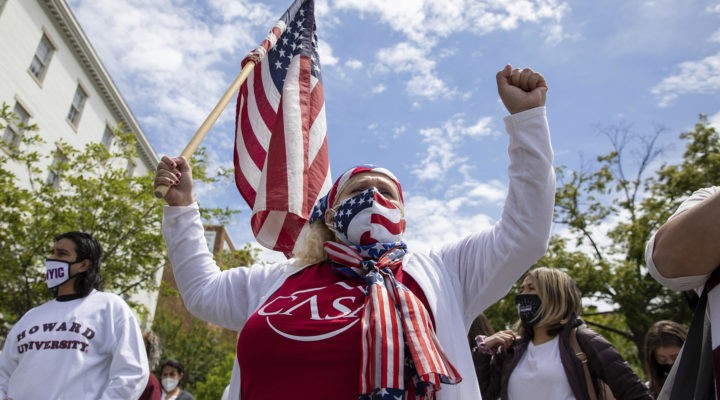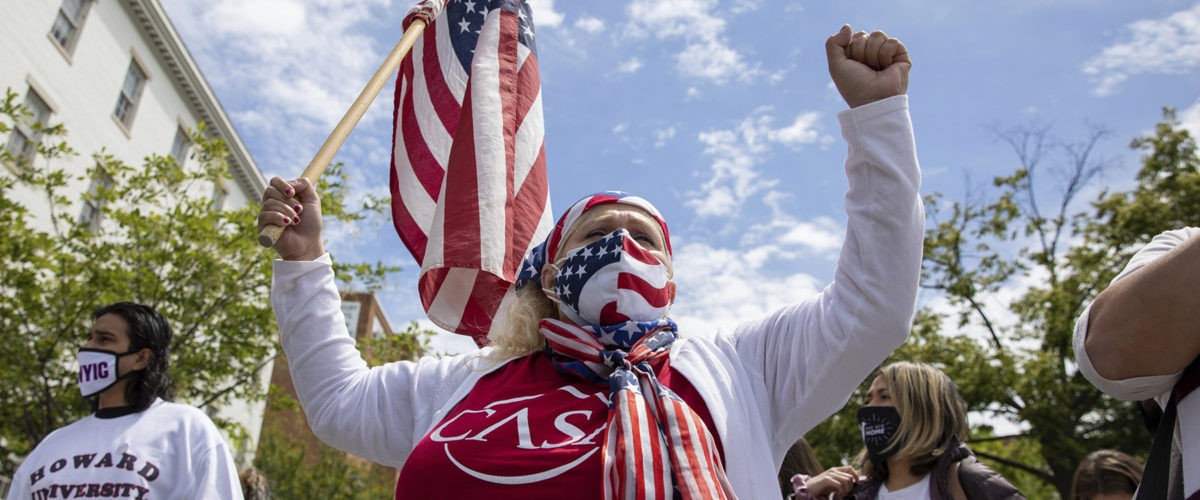Amid the highly contentious debate about how best to enact comprehensive immigration reform on a federal level, several thousand evangelical Christians have signed on to a set of recommendations drafted by the Evangelical Immigration Table.
Organizers say they are presenting a middle way forward rooted in biblical values.
The Evangelical Call for Restitution-Based Immigration Reform urges elected officials to take urgent action on immigration reform, something Congress has been deadlocked on for years. It proposes a way for immigrants who have come into the United States unlawfully to earn Lawful Permanent Resident status by paying a fine as restitution for their violation of U.S. immigration law.
It proposes a way for immigrants who have come into the United States unlawfully to earn Lawful Permanent Resident status by paying a fine as restitution.
The proposal also suggests that Dreamers — young immigrants brought to the United States as children — should have a path toward permanent legal status and eventual citizenship exempt from a fine. Dreamers currently are able to remain in the country through the Deferred Action for Childhood Arrivals order first issued by President Barack Obama when Congress refused to act on the matter.
Although the Trump administration and the Trump wing of the Republican Party sought to dismantled DACA, most evangelical Christians — like most Americans — support creating a permanent citizenship solution for Dreamers.
To date, more than 5,000 people have signed on to the document. They include leaders from the Assemblies of God, the Church of the Nazarene, the Evangelical Covenant Church, the Evangelical Free Church of America, the Free Methodist Church, the Wesleyan Church and the Southern Baptist Convention. Dozens of Christian college, university and seminary presidents have affirmed the document as well.
The document states: “Recognizing that past attempts to solve this growing national dilemma have failed, only causing more division and suspicion in our country, we support solutions that encompass the following goals and that honor the rule of law while addressing the economic, moral, humanitarian and security issues arising from this problem in a fair way.”
“Because God created the family unit, governments should not violate the unity of the family except in the rarest of circumstances.”
In addition to claiming a biblical approach, the proposal asserts the value of keeping families together. “Because God created the family unit, governments should not violate the unity of the family except in the rarest of circumstances,” it states. And because “God is concerned with the well-being of those who are vulnerable, including the orphan, the widow and the foreigner, … it is appropriate for citizens to encourage our government to treat these vulnerable groups with fairness and compassion.”
The statement also says, “God delights in redemption, when those who have violated the law are able to be restored.”
The call to action includes six affirmations. Among those is a call for “fairness to taxpayers by requiring that all immigrants be self-sufficient, work, pay taxes and be productive, or be in families and households that are doing so.” It also calls for the federal government “to establish a secure border and an efficient and orderly process of immigration.”
Taking action is a moral imperative, the statement asserts: “Deporting all immigrants here in the country illegally is neither feasible nor morally just. Immigrant families are integral parts of our communities, and children have been born and raised here who are U.S. citizens. Many immigrant families have been here for decades, and many are members of local churches. We must develop a solution that fits the problem we have, solves it by upholding the rule of law, creates a process of restitution, and gives the possibility of integration so immigrants can fully participate in American life.”
“Deporting all immigrants here in the country illegally is neither feasible nor morally just.”
Finding any room for agreement on immigration reform has been elusive in Congress session after session. That chasm deepened with the election of Donald Trump, who ran on a strident anti-immigrant, “America first” platform that energized his base of supporters, including many evangelical Christians.

Russell Moore
Russell Moore, who this week announced his departure from the helm of the SBC Ethics and Religious Liberty Commission, was roundly criticized by the rightward flank of his own denomination for his support of legal immigration.
He is among the endorsers of this call to action.
“This call for restitution-based reform is important. That’s because the security of our nation requires both a strong border and a society healthy enough to encourage those living in the shadows to come into the light,” Moore said. “Millions of our undocumented neighbors in our communities and our churches want to do the right thing. They just don’t know what the right thing is, because our government can’t make up its mind about that. We would do well as a country to make a way for them to earn the chance to do so.”
In April, three Texas legislators and an Arizona senator introduced a bipartisan bill they hope might bridge the gap on this issue. The Bipartisan Border Solutions Act (S. 1358) received mixed reviews from immigration advocates. Some hailed it as a compromise between the entrenched positions of Democrats and Republicans, while others warned it is a wolf in sheep’s clothing because it would empower U.S. Customs and Border Protection — a government entity distrusted by Democrats and some immigration-rights activists because of its implementation of Trump-era policies.
This is not the first time the Evangelical Immigration Table has pitched the ideas in its current document. A similar document was released in 2019.
Faith leaders behind the movement said they believe the time is right for their proposals to gain attention.

Walter Kim
“The proposal being released today by a very broad range of evangelical leaders strikes the right balance. It is neither amnesty nor mass deportation, but a restitution-based legalization process,” said Scott Arbeiter, president of World Relief. “I hope many evangelical Christians throughout the country will lend their voices to this call and that Congress will listen, finally enacting the immigration reforms that our country desperately needs.”
“The new Congress and administration have an opportunity to provide overdue moral leadership in fixing our broken immigration system so that it reflects justice and compassion while maintaining the security of our borders,” said Walter Kim, president of the National Association of Evangelicals.
Related articles:
Biden administration rushing to strengthen DACA, official says
A bipartisan immigration bill has been introduced, but will it garner bipartisan support?
Panelists debate how to ‘normalize’ immigration after ill effects of Trumpism
What would happen if immigration policies were based on majority opinion in the U.S.?


